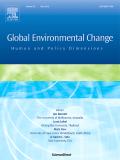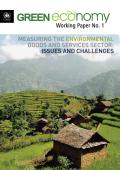
In a clean energy economy, green businesses play a central role by utilizing renewable energy technologies and employing green labor forces to provide clean energy services and goods. This paper aims at analyzing factors driving the growth and survival of green businesses in the U.S. states, with hypotheses proposed on the impacts from clean energy policies and tax incentives, labor market conditions, and economic and political environments. A fixed effect regression analysis is applied with a panel data set of 48 continental states from 1998 to 2007 in the United States. The statistical analysis with a longitudinal data set reveals that the adoption of renewable energy policies, the permission of renewable energy credits imports, the stringency of minimum wage legislations, and presence of clean energy business associations are the major driving forces of the green business development in the U.S. states.
The United States, Europe, and non-governmental international organizations are seeking to encourage the creation of green jobs and the use of non-hydropower renewable energy. This paper discusses the challenge in defining green jobs and reviews definitions across different countries, states, and NGOs. The paper describes some of the costs the United States has faced in creating jobs through programs funded by the Departments of Labor and Energy. The paper concludes by comparing the experiences of China and the United States in the use of renewable energy.
This article appeared in the Energy Economics Supplemental Issue: Green Perspectives.

The rhetorical zeal for green enterprise as a global fix for the tripartite challenges of economic recession, environmental degradation and social inequality is increasingly visible in state and non-state pronouncements around the globe under the banner of ‘The Green Economy’. In particular, many policy-facing statements call for transitions leading to a transformation in development practices. Yet there is little detail either in policy or research regarding the types of transitions needed and how they are to be initiated, nor agreement about what a transformed economy might look like. Despite this, there are emergent activities within the cleantech arena which are being heralded as actually existing examples of green economy activities. One means through which these activities are seeking to exert influence over development trajectories is by clustering both at the subnational and transnational level. While diverse in formation, many of these clusters are hybridised, involving actors from public, private and civil society sectors.

Payments for Ecosystem Services (PES) describes the situation where the user of an environmental service, such as water purification, pays the landowners who provide that service. For PES to exist, there must be a clearly defined user and supplier, as well as a number of other necessary conditions, which are defined in this document using a summary of current sources. Particular attention is paid to how these conditions currently obtain within the UNECE region. The range of forest environment services is explored through fourteen detailed case studies, which examine best practice in promoting PES. Political and public relations implications of PES are discussed at length, and recommendations include the need for clarity about where PES may be a useful tool in moving towards a green economy and where other methods may be more appropriate.

As an increasing number of countries adopt green economy strategies, there is a need to support them in measuring the magnitude of this new economy. This papers aims to guide them in this discussion. An Environmental Goods and Services Sector (EGSS) framework is a vital instrument for facilitating the greening of the economy, as it encompasses the two priority areas for green economy indicator development, namely the greening of conventional economic activities and the growing share of green or environment-related sectors.
